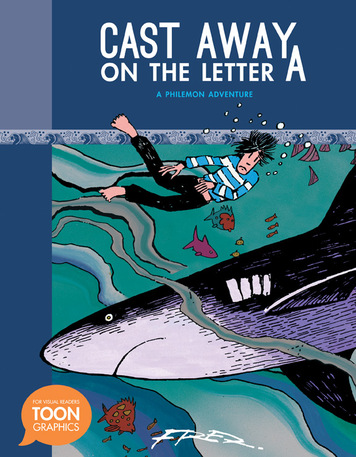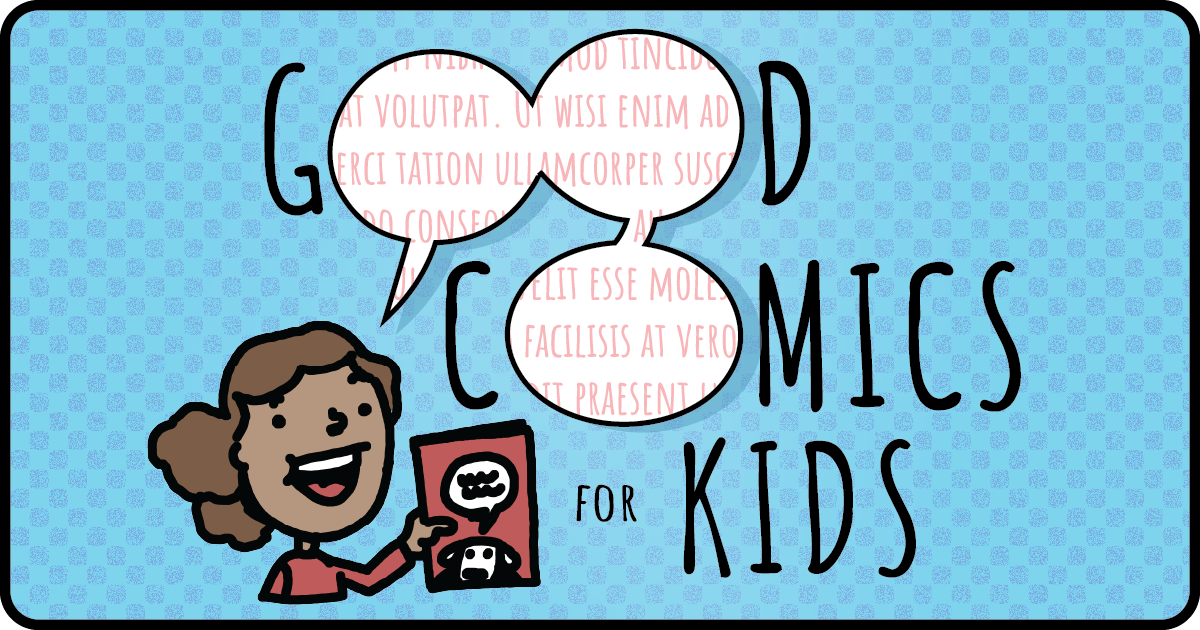
Review: Cast Away on the Letter A
 Cast Away on the Letter A
Cast Away on the Letter A
By Fred
Toon Books; $17
While I imagine there are quite a few benefits to running one’s own imprint, rather high on the list must be the ability to introduce an entirely new generation in an entirely new country to a favorite story of your youth, and, better yet, to find out that the story in question is every bit as timeless as you thought it would be.
That seems to be the case with Toon Books’ publisher and editor Francoise Mouly, who is launching a new Toon Graphics imprint of longer graphic novels with a translation of the late Frederic Otohn Aristedes’ Philemon adventure, Cast Away on the Letter A. As Mouly recounts in a short afterword following the adventure story, Aristedes’ Philemon strips were among her favorite in the comics anthologies she grew up reading in France, along with Asterisx and Lucky Luke (certainly good company to be in).
ADVERTISEMENT
ADVERTISEMENT
So who exactly is this Philemon character, aside from being the star of strips from a famous French cartoonist, better known by his pen name Fred, that young Mouly so enjoyed?
Philemon, as we learn in the opening pages here, is a young boy who lives in the country with his often grouchy, shouting, and cursing father Hector, and with his friend Anatole, a talking donkey. This story begins when Hector sends Philemon to the well to fetch some water, and as the boy complies, he finds a series of bottles with messages in them, of the sort a castaway might throw out to sea in hope of rescue.
Philemon falls into the well and gets sucked within its depths, spotting a shark before passing out, only to wash up on a beach. The island he finds himself on is so nonsensical as to make Alice’s Wonderland seem run-of-the-mill: Two green suns shine in the sky, a clock springs out of the sand like a fast-growing weed only to explode a few seconds later, bottles grow on trees and…well, you get the idea.
It turns out the strange land Philemon finds himself on is the letter “A” that the word “Atlantic Ocean” begins with; look at most any map or globe, and you’ll see the chain of islands spelling out “Atlantic Ocean” is indeed there. Philemon’s not the only castaway on the letter A; there’s also a well-digger from his town called Mr. Bartholomew, who, like Robinson Crusoe, is dressed in clothes made of plants and has made a native friend by the name of Friday…although Bartholomew’s Friday is a centaur, rather than a human being.
To get off the letter A, Philemon must solve a strange riddle and navigate a labyrinth, fight a lamp, befriend the crew of a ship in a bottle and get to the other A in “Atlantic.”
Don’t worry, everything works out okay, as Philemon finds the exit that leads back to the well in his own, one-sunned world. (You know what they say—all’s well that ends in a well!).
Philemon’s father Hector naturally doesn’t believe the outlandish story, despite having a bit of proof presented to him—the water in the well is salty. Hector’s refusal to believe Philemon’s outlandish stories of his even more outlandish adventures is apparently a theme in Fred’s Philemon strips.
ADVERTISEMENT
ADVERTISEMENT
I’ve already mentioned Lewis Carroll’s Alice, and Fred’s story shares quite a bit in common with the Alice stories, involving as they do a young person finding an everyday thing is actually a portal to a crazy land of dream-logic and random adventure, before returning safely to the mundane world.
There’s nothing about the story that seems inherently French or inherently old, nothing that would keep a kid or teenager or grown-up from today from enjoying the gags and adventure elements, and Fred’s artwork is a nice, roughly-hewn admixture of cartoonish characters with highly detailed, layered environments and objects.
Like all Toon Books, this one ends with a little bit of backmatter for parents, teachers and librarians, only because this is a bigger book, there’s more of it, including the afterword by Mouly, a short bio of Fred, two pages of notes noting various allusions in the work, and a few book club-like discussion questions.
It’s a great read but, beyond that, it’s of the sort one hopes finds an audience and does well, so that we get more of Fred’s Philemon translated and published here in the United States.
About J. Caleb Mozzocco
J. Caleb Mozzocco is a way-too-busy freelance writer who has written about comics for online and print venues for a rather long time now. He currently contributes to Comic Book Resources' Robot 6 blog and ComicsAlliance, and maintains his own daily-ish blog at EveryDayIsLikeWednesday.blogspot.com. He lives in northeast Ohio, where he works as a circulation clerk at a public library by day.
ADVERTISEMENT
ADVERTISEMENT
SLJ Blog Network
Name That LEGO Book Cover! (#53)
Cover Reveal and Q&A: The One and Only Googoosh with Azadeh Westergaard
Fighting Public School Book Bans with the Civil Rights Act
Take Five: Middle Grade Anthologies and Short Story Collections
ADVERTISEMENT








Nice article/review! I can’t wait to pick this up.